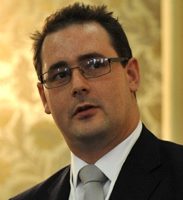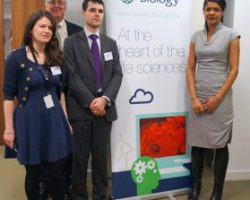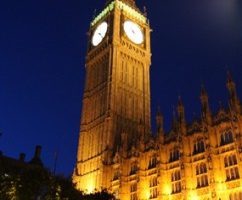Would you like termites with that?
Lauren Hoskin is a recent graduate in microbiology. She is interested in a career in science communication and writes for her own blog, Science Says as well as for the Student Hubs blog. Many problems faced by humans do not have simple answers, especially in the area of food security. How will we feed nine billion people in 2050? How do we make sure food is distributed equally? The list goes on. But there is one solution to the ever-growing problem of meat production which could help to reduce carbon emissions. PROteINSECT, launched in early 2013, is a Food and Environment Research Agency (FERA)-led project which has started to look at the idea of insects as animal feed. Rearing fly larvae on a range of organic waste and using them as a source of cheap and nutritious protein for animals would help to use waste effectively and improve land efficiency….




